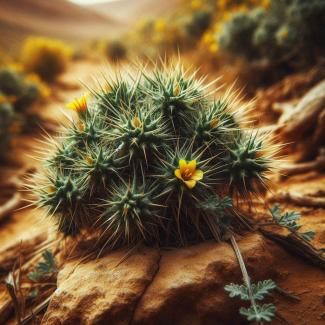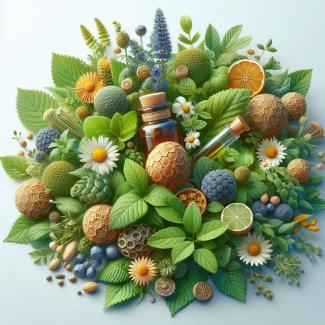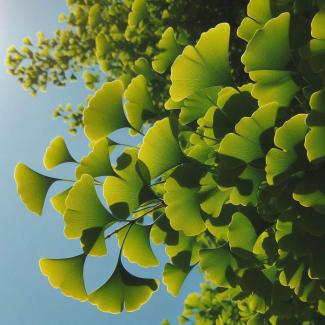
Tribulus Terrestris is a plant long associated with traditional medicine, particularly for its potential to enhance sexual power and endurance. Often hailed as a natural remedy for improving vitality and overall sexual health, it has been the subject of numerous studies that explore its effects on various bodily functions, athletic performance, and general health. Though much of its traditional use stems from Ayurvedic and Chinese medicinal practices, the modern market has seen a surge in supplements containing Tribulus Terrestris due to its potential benefits for male sexual health, hormonal balance, and athletic performance.
Discover the Secrets of How Tribulus Terrestris Works
Tribulus Terrestris has gained attention for its proposed effects on increasing testosterone levels, enhancing libido, and improving endurance. The key compounds responsible for these effects are steroidal saponins, particularly protodioscin. These compounds are believed to stimulate the production of luteinizing hormone (LH), which in turn signals the testes to produce more testosterone in men, or possibly enhance androgen levels in women. This process contributes to improved sexual function, increased libido, and possibly greater physical endurance.
While many traditional cultures have used Tribulus Terrestris for centuries, the scientific community has sought to understand these mechanisms more deeply. A 2017 study published in the Journal of Ethnopharmacology examined the effects of Tribulus on testosterone production in animal models and found a significant increase in LH levels and a correlated boost in testosterone production. However, the results in human trials have been mixed. While some studies show modest increases in testosterone, others reveal no significant hormonal changes, suggesting that Tribulus’ effects may vary depending on individual physiology and other health factors.
How Does Tribulus Terrestris Affect Health?
In addition to its proposed effects on sexual health and performance, Tribulus Terrestris is reputed to have other health benefits, ranging from cardiovascular support to improved mood. For example, in animal studies, Tribulus has demonstrated potential antihypertensive and diuretic properties. The plant’s ability to reduce blood pressure has been attributed to its vasodilatory effects, allowing for increased blood flow, which can positively impact not only sexual function but also heart health.
Furthermore, research has highlighted Tribulus Terrestris' antioxidant properties. By scavenging free radicals, it may help mitigate oxidative stress, which is linked to chronic diseases such as cancer, diabetes, and neurodegenerative conditions. A study published in Phytotherapy Research in 2014 showed that Tribulus extracts significantly reduced oxidative markers in rat models, pointing to its potential role in maintaining cellular health and preventing the onset of age-related diseases.
In the context of sexual health, Tribulus may also support erectile function by improving nitric oxide levels. Nitric oxide is essential for vasodilation, particularly in the smooth muscle tissue of the penis. A study published in the International Journal of Impotence Research revealed that men with mild erectile dysfunction experienced significant improvement after taking a Tribulus supplement over several weeks. However, more comprehensive clinical trials are needed to confirm its efficacy in humans.
Effective Recovery Methods
Tribulus Terrestris isn’t just known for its aphrodisiac and performance-enhancing properties—it also plays a role in physical recovery. Athletes often use this supplement to aid post-workout recovery by promoting faster muscle repair and reducing inflammation. The anti-inflammatory effects of Tribulus are particularly beneficial for those who engage in intense physical training, as it may help reduce muscle soreness and accelerate recovery time.
Research in the Journal of Sports Medicine and Physical Fitness has explored the role of Tribulus in enhancing recovery in athletes. By influencing the body’s hormonal responses and supporting muscle regeneration, Tribulus supplements may contribute to faster recovery after strenuous workouts, which is essential for maintaining long-term athletic performance.
Additionally, Tribulus Terrestris has been noted for its adaptogenic properties, which may help the body manage stress, both physical and psychological. Adaptogens are natural substances that help the body resist stressors of all kinds, whether due to physical exertion, emotional strain, or environmental factors. By supporting the adrenal glands, Tribulus may assist in balancing cortisol levels, further promoting faster recovery and a healthier stress response.
Where Does Tribulus Terrestris Grow, and Can I Grow It Myself?
Tribulus Terrestris is native to warm, tropical, and subtropical regions, including Southern Europe, Asia, Africa, and Australia. It thrives in dry, sandy soils, often found in desert-like climates. The plant is drought-resistant and can grow in relatively poor soil conditions, making it hardy and adaptable to various environments.
If you're interested in growing Tribulus Terrestris yourself, it's important to note that it requires full sunlight and well-drained soil. The plant can be grown from seeds, which are typically sown in spring after the last frost. It’s crucial to water the plant sparingly since overwatering can lead to root rot. Additionally, Tribulus Terrestris is a creeping herb, meaning it spreads along the ground, so it requires ample space to grow. The plant’s fruit, often referred to as the "devil’s thorn," can be harvested when ripe and is commonly used in traditional herbal preparations.
Due to its invasive nature, it's also worth checking local regulations before planting Tribulus, as it can sometimes be classified as a noxious weed in certain regions.
Commercial Products Available on the Market
Tribulus Terrestris is widely available in various forms, from powders and capsules to tinctures and teas. Many supplements on the market are standardized to contain a specific percentage of saponins, particularly protodioscin, which is believed to be the most active compound responsible for its health benefits.
One of the most popular forms of Tribulus is in capsule form, often marketed as a testosterone booster or sexual enhancement supplement. These products may also include additional ingredients such as zinc, magnesium, or other herbs like Maca or Ashwagandha, which are thought to complement Tribulus' effects on vitality and sexual health.
Some examples of commercial products include:
- Tribulus Terrestris Extract Capsules: Often standardized to contain a certain percentage of saponins, these are taken daily to support overall health, vitality, and testosterone levels.
- Tribulus Tea: For those who prefer a more traditional approach, Tribulus can be brewed into a tea. This form is typically used in folk medicine for its diuretic and anti-inflammatory properties.
- Tribulus Tinctures: These liquid extracts are popular in herbal medicine practices and can be added to water or taken directly for faster absorption of the plant’s active compounds.
When purchasing Tribulus supplements, it’s essential to choose products from reputable brands that provide transparency regarding the concentration of active ingredients and third-party testing.
How Do We Do the Test?
Testing the effects of Tribulus Terrestris can be done through both subjective and objective methods, depending on the intended use. For those looking to enhance sexual performance or improve endurance, personal experimentation may involve tracking changes in libido, stamina, and overall energy levels after taking the supplement for a designated period, usually around 4–8 weeks.
From a scientific standpoint, testing Tribulus Terrestris' effects on testosterone levels and other hormonal markers typically involves a blood test. Measuring levels of testosterone, LH, and other relevant hormones before and after supplement use can provide insight into its impact on the endocrine system.
Moreover, studies focusing on athletic performance often use physical tests such as VO2 max (a measure of cardiovascular fitness), muscle recovery times, or strength output to assess any changes in performance. Researchers may also use more sophisticated methods, like biopsies or imaging techniques, to observe Tribulus' effects on muscle growth, inflammation, and recovery.
In clinical trials, double-blind placebo-controlled studies are the gold standard for testing supplements like Tribulus Terrestris. These trials help to eliminate biases and provide more reliable data on the true effects of the herb on various health parameters.
Tribulus Terrestris is a fascinating herb that holds great potential for enhancing sexual health, supporting hormonal balance, and improving physical endurance and recovery. While its traditional uses are well-documented, modern research continues to explore its true efficacy and mechanisms of action. Whether taken for its proposed testosterone-boosting effects or its ability to support recovery and reduce inflammation, Tribulus Terrestris remains a popular choice for those seeking natural ways to enhance their health and vitality.
As with any supplement, it's important to approach Tribulus Terrestris with a sense of caution, choosing high-quality products and consulting with a healthcare provider, particularly for individuals with underlying health conditions or those taking medications. Though it may not be a one-size-fits-all solution, the combination of historical use and emerging scientific evidence suggests that Tribulus Terrestris may indeed play a valuable role in promoting overall health and well-being.






